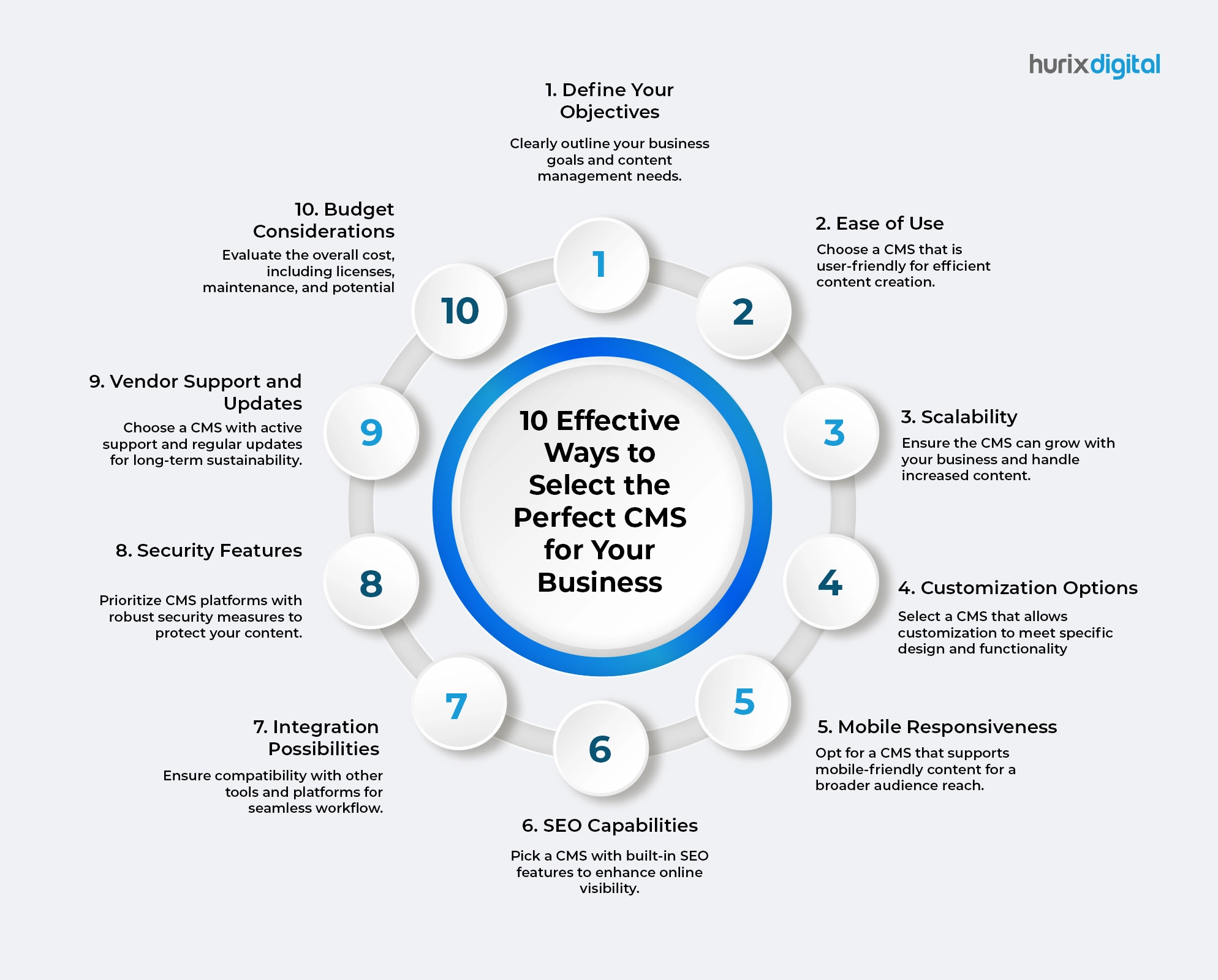Selecting the right CMS (Content Management System) is a critical decision for businesses looking to manage and publish digital content efficiently. The right platform helps streamline workflows, improve site performance, and enhance the user experience.
With many options available, businesses need to evaluate their needs before making a decision. A well-chosen CMS can support business growth, improve content management, and integrate with essential tools.
Ready to find the perfect CMS? Hurix Digital can help. Contact Us Now to get started.

Why Choosing the Right CMS Matters
A CMS impacts website functionality, user engagement, and long-term scalability. Without a reliable system, businesses may face:
- Difficulty managing content updates.
- Poor website performance on mobile and desktop.
- Security risks due to outdated software.
- Limited customization and integration challenges.
To avoid these issues, it’s essential to consider key factors before selecting a platform.
Key Factors to Consider When Choosing a CMS
1. Define Business Goals
Understanding content needs helps in selecting a platform that aligns with growth plans. Businesses should identify whether they need a blog, eCommerce store, or a corporate site.
2. User-Friendly Interface
A CMS should allow users to create, edit, and publish content without technical expertise. An intuitive dashboard improves productivity and reduces the learning curve.
3. Scalability and Flexibility
As businesses grow, content demands increase. The selected CMS should handle traffic spikes and support additional features without performance issues.
4. Customization Options
A good platform allows design modifications, plugin installations, and feature enhancements. Businesses should choose a system that meets branding and functionality needs.
5. Mobile Optimization
More users access websites via mobile devices. A CMS should provide responsive design capabilities to ensure seamless browsing across all screen sizes.
6. SEO Features
Optimized content ranks better in search engines. The CMS should include built-in SEO tools like meta tags, schema markup, and URL customization.
7. Integration with Other Tools
A business may require third-party integrations such as CRM, email marketing, and analytics tools. Ensuring compatibility with existing software streamlines operations.
8. Security Measures
Cyber threats can compromise business data. A secure CMS should offer features like SSL support, regular updates, and role-based access controls.
9. Ongoing Support and Updates
A reliable platform should receive frequent updates and have a support team to assist users. This ensures long-term functionality and improved security.
10. Cost and Maintenance
Pricing varies depending on features, hosting, and maintenance needs. Businesses should compare costs and ensure they get value for money.
Final Thoughts
Choosing the right CMS helps businesses manage content efficiently, enhance security, and improve website performance. A platform that aligns with business needs ensures a seamless digital experience for both creators and users.



